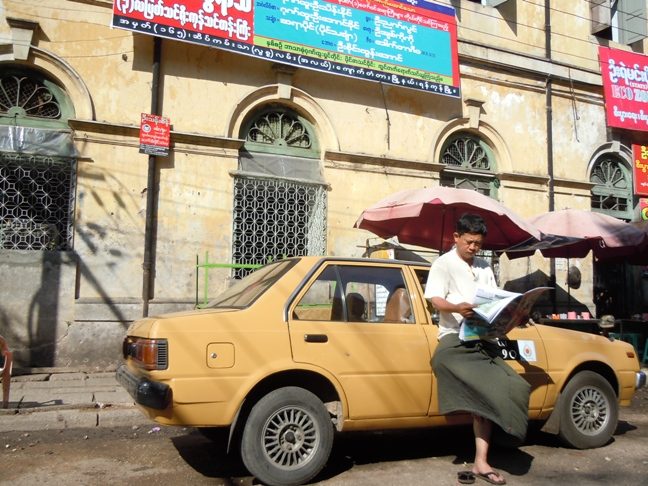New Mandala readers who follow these matters closely may have noticed that my weekly column at Mizzima has moved across to The Myanmar Times. From 9 March 2015, The Myanmar Times has been offering a daily English language paper, and my modest piece is appearing each Monday. The articles go straight online, which is a bonus in our wired epoch.
This week I deal with the uncertainty associated with (what we assume will be) the election year. It’s a big topic, obviously, and there’s only so much that can be crammed into 800 words. I suggest:
Those who call for the prosecution of senior SPDC figures must be aware that the system has yet to stabilise in the face of new pressures. Such stability may make it possible for a truth and reconciliation process to emerge, perhaps in the years or even decades to come. Done in the right way and at the right time it could be a productive, just and effective effort.
It would take skill and patience to ever adequately account for what has happened in Myanmar over those long, difficult decades. And life hasn’t stopped. New crimes and problems subsume those that came before, like layers of sediment in a fast-flowing river. Everything is blurred: opposition and government, good and bad, old and new.
This brief analysis follows earlier pieces on the Buddhist-Muslim faultline and the peace-making push. In all cases the goal is to draw attention to issues that are slightly outside the ordinary thrust of discussion. I think we need to be pragmatic and careful, but also optimistic and bold. In the grand cycles of history, Myanmar may have few chances as good as those that wait to be seized right now.
**
As somebody who has been working on Myanmar topics for some time it’s also heartening to see just how much can now be printed by the media. While there are obviously sensitive issues, and some red-lines, the old restrictions have more-or-less melted away. Today, the country has one of the least constrained publishing industries in all of Southeast Asia. It is a remarkable and hopefully permanent change. But given the history, and so much else, extra vigilance and creativity is required. It would be a great pity to lose the opportunities that free public discussion and debate can bring.
Is it still possible that the screws will be tightened in Myanmar? Of course. My guess is that such risks will remain, and not just in the short-term. But the trends are all relatively positive in this particular sphere. Pre-publication censorship is becoming a distant memory.
While that remains the case it’s important to do what we can to get behind the new initiatives that are up-and-running. For those who follow Myanmar politics, the daily newspaper being published by The Myanmar Times, as one example, will provide a great deal of extra interest as the election campaign builds momentum.
In this vibrant context, my future columns will lurch in different directions: I have immediate plans for pieces on migrant workers, official salaries and the growing appetites of the middle class. But I’m always happy to hear ideas about other topics that are worthy of attention.
 Facebook
Facebook  Twitter
Twitter  Soundcloud
Soundcloud  Youtube
Youtube  Rss
Rss 